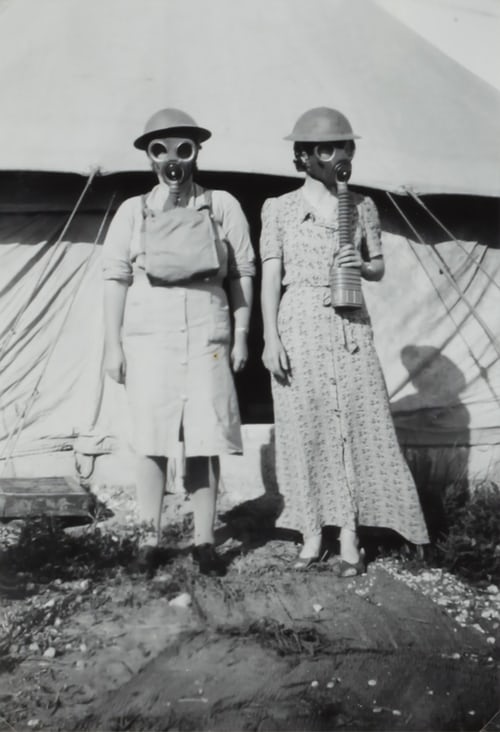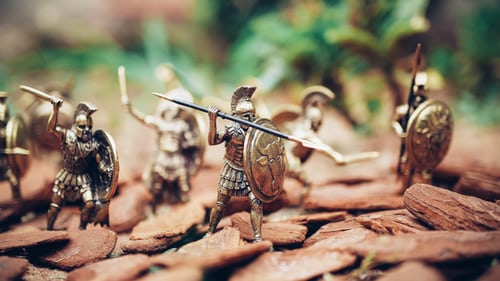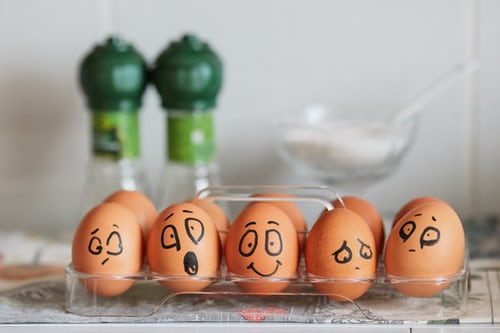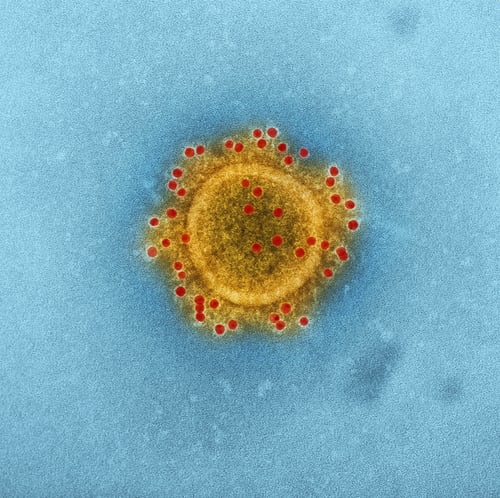The world has fought a lot of wars throughout history, and it feels as though we’re fighting a war now. A battle against a tiny microbe—officially named COronaVIrusDisease-19 (COVID-19)—invisible to the naked eye. That’s one of the problems with this particular battle. We like to see our enemy, be able to predict what he’s going to do next, calculate how to handle him and thwart his plans.
But with this little halo-surrounded enemy, it seems we can only develop hypothetical models that keep changing, shut everyone behind closed doors, and hope for the best.
It’s obviously a little more complicated and sophisticated than that, but to the average person on the street—who has now been told in some places to continue staying off the street (or beach) or get arrested—it all seems about that simple.

A time of stark contrasts—
The times we’re living in, the battle we’re fighting, brings to mind the opening line from one of my favorite books, one of the best books ever written: A Tale of Two Cities by Charles Dickens. A lot of you could probably recite it without looking it up—
“It was the best of times, it was the worst of times…
This beginning of the very l-o-n-g first line pretty much says it all for us. We can relate.
Dickens tells the story about life in another war, the French Revolution, and he continues with a string of contrasts.
…it was the age of wisdom, it was the age of foolishness,
it was the epoch of belief, it was the epoch of incredulity,
it was the season of Light, it was the season of Darkness,
it was the spring of hope, it was the winter of despair,
we had everything before us, we had nothing before us,
we were all going to Heaven, we were all going direct the other way.”
A far-flung range of emotions—
How many of us have gone through, or are still going through, these wildly contrasting emotions?
For those of us who cherish our families and time spent with them, we feel doubly blessed to be around them so much.
But domestic violence is on the rise, and tensions are developing in families suffering from too little personal space, or outdoor space. And upended orderly, hyper-scheduled lives.
Drunk driving accidents and arrests are way down; but drinking and drug use have increased dramatically.
We’re looking to trained professionals to give us answers, and we get a multitude of opinions.
A possible breakthrough medication is mentioned, and a couple thinks their fish tank cleaner containing some of the same chemical will work for a homeopathic treatment. After all, they don’t want to get the virus, so—without doctor recommendation or consultation—they ingest their fish tank cleaner. (Who does this!?) The husband dies, and his wife blames our country’s president for her stupidity.
It’s a time of people being terrified and too self-protective, and a time of people throwing caution to the wind, inviting trouble, and putting God to the test.
It’s a time marked by notable events, when we desperately want to believe someone, and a time when we’re so shocked by the unfolding circumstances we doubt everything.
For believers in God, it’s a time when they see Him moving, showing His power, fulfilling prophecy; for the unbeliever, it’s a time of sadness, anxiety, and paralyzing fear.
For those able to maintain their jobs and support their families, it’s a blip on the inconvenience scale. (For some, like my husband, it’s a blessing to not have to rush to and from work every day.) For those watching their lives and livelihoods unravel, they feel stunned, betrayed and helpless. Their futures look dark and impossible. Hopeless.
For them, there is nothing before them.
For others, their greatest fear is whether or not they’ll have enough toilet paper to last through the lockdown. For so many around the world, they don’t know if they’ll have food to feed their children their next meal.
For all of us, we only know what we have right now—before us—and see only a question mark for our and our countries’ futures.
What next?
When will this end, or will it? Will we have to permanently adjust to a “new normal?’
Will staying quarantined, hunkered down, and apprehensive change our brain chemistry so much that we wouldn’t be able to return to normal even if we wanted to?
Rarely in history have we felt the collective “we” we’re now experiencing. The global “we” that for a brief blink in time puts us squarely in the human fragility boat.
As a young man said during an international prayer call I joined in on a week ago: “Thank you, Lord, for bringing us to our knees and showing us just how small, helpless and vulnerable we are.”
It was an admission of humility, of God’s omnipotence. And it was also a plea for mercy to a God that listens when His people cry out to Him. He’s not the detached, aloof God of the Deist; He’s a God of His creation, His people, His children, who listens when they say, “Abba (Daddy), help!”
It may not seem as though He’s listening or moving, but He is. He always is.

What’s in a name—war or not?
Some people don’t like referring to this pandemic as a war. While it may not be in the strictest sense, for many people it certainly is a battle—emotionally, physically, spiritually and financially.
As during Dickens’ story, we are living in a time of stark contrasts:
- hope and fear
- knowledge and ignorance
- trust and suspicion
- resignation and obedience and blaming and rebellion
- hope and hopeless
- Light and Darkness
- hope and despair
- joyful solitude and despairing isolation
- resolution and waffling
- meditation and anxiety
- acceptance and rejection
- prayer and self-focus
- gain and loss

Good emotions versus bad emotions—
I could fill pages with these contrasts. And strike up a passionate discussion.
Are these negative emotions bad?
No. They’re honest emotions, reasonable and human reactions to upended lives, unknown futures, unanswered questions, and death.
The negative emotions aren’t bad, unless we allow them to swallow up or control our thoughts, kill the positive emotions, and rule our lives.
But the ultimate question is: which contrast do you want to cling to, to practice, to emulate? To grow in. To emerge from this pandemic a better person than you were when you entered it.
Because it is a time of change and growth. A time when we’re confronted with difficult decisions. And we need to look to Someone who can shine a Light on the best ones and guide us down the best paths.
Ultimately, we do have a choice to make it our worst of times or our best of times. Or the opposite.
I don’t mean to imply that this is easy. It’s not. It may take every last ounce of energy we have to successfully emerge and resume a more “normal” life. One that’s hopeful and purposeful. God’s been known to do that to people throughout history to make alterations permanent.
It helps us remember.
A little encouragement—
Before I sign off with the invitation for today, I want to leave you with a couple of encouraging truths:
“You do not need to know precisely what is happening, or exactly where it is all going. What you need is to recognize the possibilities and challenges offered by the present moment, and to embrace them with courage, faith and hope.” —Thomas Merton
“It is of the LORD’S mercies that we are not consumed, because his compassions fail not. They are new every morning: great is thy faithfulness.” —Lamentations 3:22-23 (KJV)
Invitation
- Write down all of the emotions this pandemic and chaos has caused you to experience. Don’t judge them, or yourself. Just jot them down.
Then write down why you think you’ve felt these emotions—like fearfulness, anxiety, weepiness, peace.
Draw pictures to accompany your feelings.
Continue to do this as your lockdown progresses or restrictions are eased.
Do you see changes in your emotions and their ability to control you?
- Write the steps you can take to make sure your emotions and physical and spiritual life end up on the positive side of the contrasts.
Or turn it into a prayer, asking God to help and guide you to accomplishing those attitudes and behaviors.
Better yet, turn it into worship. It’s hard to feel negative emotions when you’re singing praise and worship songs!
Here’s one of my favorites to get you started.
And I’ll see you back here next week (or sooner)!
Blessings,
Andrea
Andrea Arthur Owan, M.S., A.T., R., is a fitness pro, chaplain, and award-winning inspirational writer. She works and writes to help people recover from grief and loss and to live their best lives — physically, emotionally, and spiritually.
